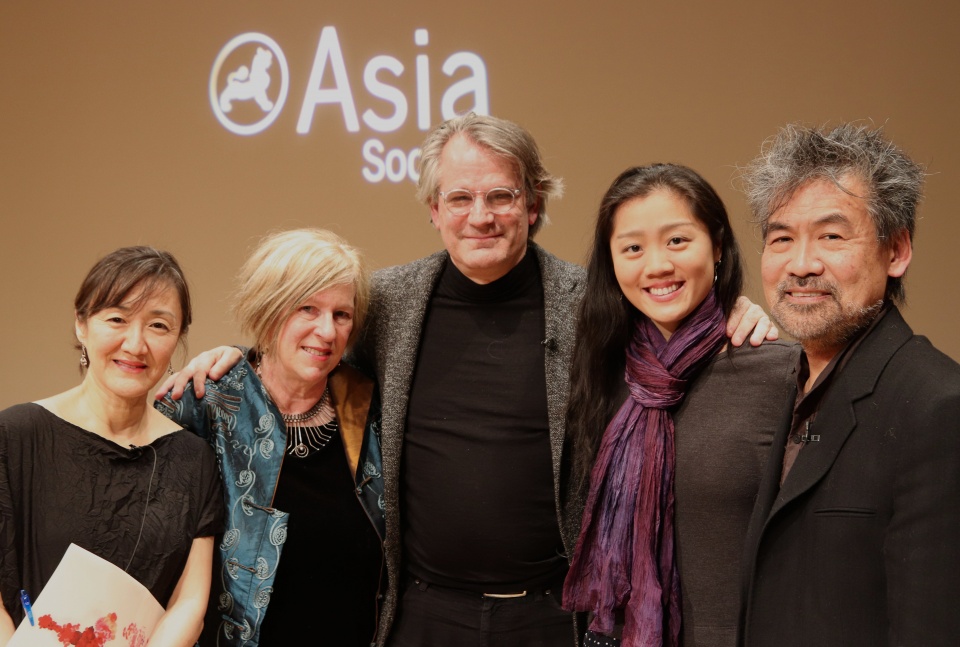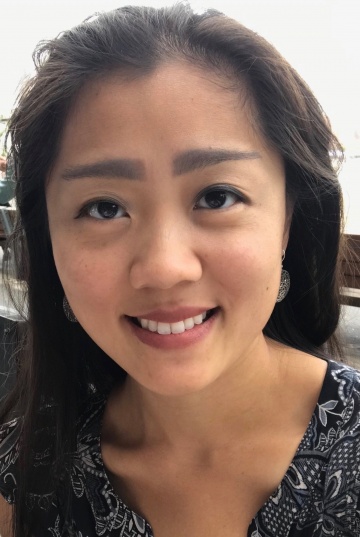Columbia College | Columbia University in the City of New York
“Come Away, Come Away,” by Marina Chan ’17
“The theater darkened, the curtain rose, and I was lost in a world of coconut palms and banyan trees, engulfed in a tale of war and racism … ” So began the personal statement on my Common Application. That moment on my 13th birthday would change my life forever. Maybe this essay is my second personal statement, although this time I’m not trying to get into my dream college, but rather a world I’ve been dreaming of ever since that 2008 Lincoln Center revival of South Pacific.
In February 2018 I got lunch with my former theater professor, Hana Worthen. How weird it was being back on campus as a relatively newly minted grad sharing about post-college life. My studies at Columbia had been Eurocentric, with only a few chances to cultivate my Asian heritage, but following graduation I’d inadvertently made up for that: I learned as much Chinese as possible before visiting China for the first time since my adoption as an infant, and started a performing arts internship at Asia Society. “What was that last one?” Hana asked. Somehow the next five minutes of conversation launched what would become a yearlong partnership I headed for Asia Society and the Barnard Theatre Department.
I flashed back to my 13th birthday, the curtain rising and the overture giving way to the action on stage. There as Navy nurse Nellie Forbush was Kelli O’Hara, the artist who gave me my passion and inspired me to want to play spunky Nellie, whose powerful experiences conquer her racial prejudice. I was riding high, until I gazed in the mirror. Oh yeah. A tailspin, an identity crisis, a stream of disheartening realizations — I couldn’t play Nellie simply because of the way I looked! What roles could I play? Roles for Asians seemed at best underdeveloped, stereotypical. Why?
My project would address those questions, which had remained unanswered through college. There hadn’t been enough room in my drama major to delve into such issues as yellowface, orientalism, cultural appropriation, Asian stereotypes, reductive typecasting, tokenism, whitewashing and erasure. Luckily, I’d long resolved to resent my identity no more, but embrace it, exploring theater in its many aspects and writing the roles I wished to see. Still, there was work to be done, so I welcomed this project with open arms.
This was a mission, the continuation of a critical journey I knew must parallel that of other Asian Americans and minorities in the arts and even across the board — especially after I’d contextualized and found that my story was caught up in something much larger.
My work culminated in a series of three panel discussions with theater professionals and scholars examining the politics of Asian American theater, artistic identity and activism, with an eye toward expediting awareness and change. I prefaced the series with a lecture in Hana’s dramaturgy class, where I pinpointed the underlying problems — colonialist legacies, racialist ideology, gendered power dynamics — and examined the types of racism Asian Americans have faced from more than a century ago, resulting in vacillating depictions of Asians on stage and screen: polluting (Yellow Peril: Fu Manchu; Dragon Lady) to nonthreatening (emasculated loser, geek, comic sidekick; Lotus Blossom), martial artist to coolie to model minority; foreigner/deviant/criminal to domesticated/honorary white/invisible.
NYU Tisch professor Karen Shimakawa’s theory of “national abjection” attributes these contrasting stereotypes to the distinct position of Asian Americans — in constant limbo, included and excluded at once, not American enough, too Asian, not Asian enough. As an actor and playwright, I’d have to struggle against these burdens and limitations, striving for the universality I’d automatically be granted if I were white.
Meanwhile Crazy Rich Asians came out, soon after Broadway produced its first play by a female Asian American playwright, Young Jean Lee’s Straight White Men. Change was in the air, but certain things still felt sluggish, with the hiring of Asian Americans in theater and film consistently remaining under 4 or 5 percent.
Our series specifically concerned theater, so I sought out the Asian American theater community at the Consortium of Asian American Theaters & Artists’ ConFest in Chicago. Leading the way were veterans who’d already been fighting for decades, including Tisa Chang BC’63 of Pan Asian Rep, Mia Katigbak BC’76, GSAS’96 of the National Asian American Theatre Company and Ralph B. Peña of Ma-Yi. The three discussed their theater companies’ distinctive approaches in our first panel, with moderator Cheryl Ikemiya of the Doris Duke Foundation.
Another panel looked toward 2042, when people of color are projected to become the U.S. majority. How can we ensure that our stages reflect our shifting demographics? Our panelists — Roberta Uno of ArtChangeUS, Mia Yoo of La MaMa, playwright Hansol Jung and moderator Jonathan McCrory of the National Black Theatre — discussed these issues through the lens of intersectionality, stretching beyond social and cultural confines and labels.
I am deeply grateful to these artists for the progress they’ve made and paths they’ve forged. I’d finally found a theater community I was truly a part of, and nothing felt more affirming. There were still, however, challenges, including being chastised by some for wanting to involve South Pacific and The King and I director Bartlett Sher in our series: “Those shows should no longer be produced.” This saddened and concerned me: What is our collective burden? What is my responsibility?

From left: Karen Shimakawa, Rachel Cooper, Bartlett Sher, Marina Chan and David Henry Hwang at Asia Society.
Photo by Lia Chang
“Eleven years overdue,” I told Sher backstage at our panel, holding up my South Pacific Playbill. He smiled; I couldn’t tell if he was surprised, amused or both. “You want me to autograph that?” he asked. I laughed, too: “Your production did change my life!” If there was anything my journey — and Hwang’s — taught me, it was that our very grappling with older shows spurs creativity and activism. So how can they not have a place in our stories and growth?
Post-series, I’m trying to apply the wisdom accrued to my own praxis. Rewriting my senior thesis play, Elizabeth’s Wonderland — which reimagines Alice in Wonderland characters as philosophers from the Core Curriculum, critiquing our education system and society at large — has aided my transition to being an Asian theater artist and an artist in general. My immediate hope is to present a reading of my rewrite next spring for my communities and inspirations, as I reflect on the past and set off upon this new and arduous road. The path is bumpy and winding, but the mystery of the unknown keeps calling, as in South Pacific, “Come away, come away ... ”


